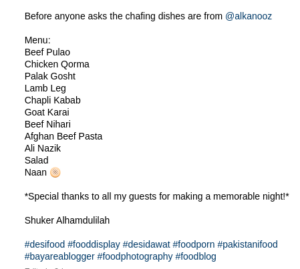As I was going through my newsletter, realizing it had been neglected for some time, I decided to jot down a few thoughts here as well, touching on a theme related to life in the United States of America.

I suspect that most of the readership of BP is either based in the US or India (though I don’t have the exact numbers), with the exception of myself and our true Pandit (who, as a Sanskrit scholar, adds a unique perspective).
As I munch on a rather ordinary banana (I usually freeze my fruit, and frozen bananas in the UK are usually bursting with flavor), I reflect on my experience of what would be an academic year in the United States and offer some observations:
- The competitive nature of the United States is palpable, especially in the Boston-Cambridge area. People here work *extremely* diligently, which contrasts with the less intense “rat race” of the Old World.

- The Puritanical influence of New England is evident in the lack of a vibrant late-night culture. Even Cambridge, UK, which was until recently a quiet university town, boasts a livelier late-night café scene than Boston-Cambridge. The relatively new Madras Dosa Company stands out as one of the few places to grab a late-night snack near Harvard Square.

- The United States seems to lack the same appreciation for aesthetics that characterizes the United Kingdom. This is a perpetual observation (or perhaps complaint) of design-conscious Dr. V, who is a Londonphile.

- That lack of appreciation for aesthetics extends to food (not to mention just how ludicrously expensive food is here); my gripe with the local Bahá’í community is rescheduling our lunch to my preferred Nepalese restaurant from the staid Indian one chosen.
- London undeniably holds the title of the South Asian capital of the world outside of South Asia itself. It’s the destination where Indians and Pakistanis, from the home countries, flock to unwind (it seems like half of Bollywood summers in London). In contrast, the “Desi-Brown” culture in the United States feels somewhat disconnected, with assimilationist tendencies prevailing strongly.

- These are merely observations and anecdotes, not hard facts, but I must admit my fondness for the United States is also because we have a dual identity as both Trans-Atlantic (Ye Old Cambridge) and Trans-Asiatic (with India rapidly becoming another anchor) so it doesn’t feel like I’m rooted here. My roots are in Asia, my nest in the UK but I come to perch in the USA.
- America exudes wealth and opulence, but it often comes at the price of everyone being caught in the relentless pursuit of keeping up. The depth and richness of life, even its decadence, seem somewhat overlooked. In some ways, Americans resemble the Chinese in their relentless drive to be number one. Few other nations and ethnicities seem willing to make such drastic sacrifices.
These musings serve as a prelude to what will be explored further in my next newsletter, written amidst the backdrop of a beautiful Raga.





